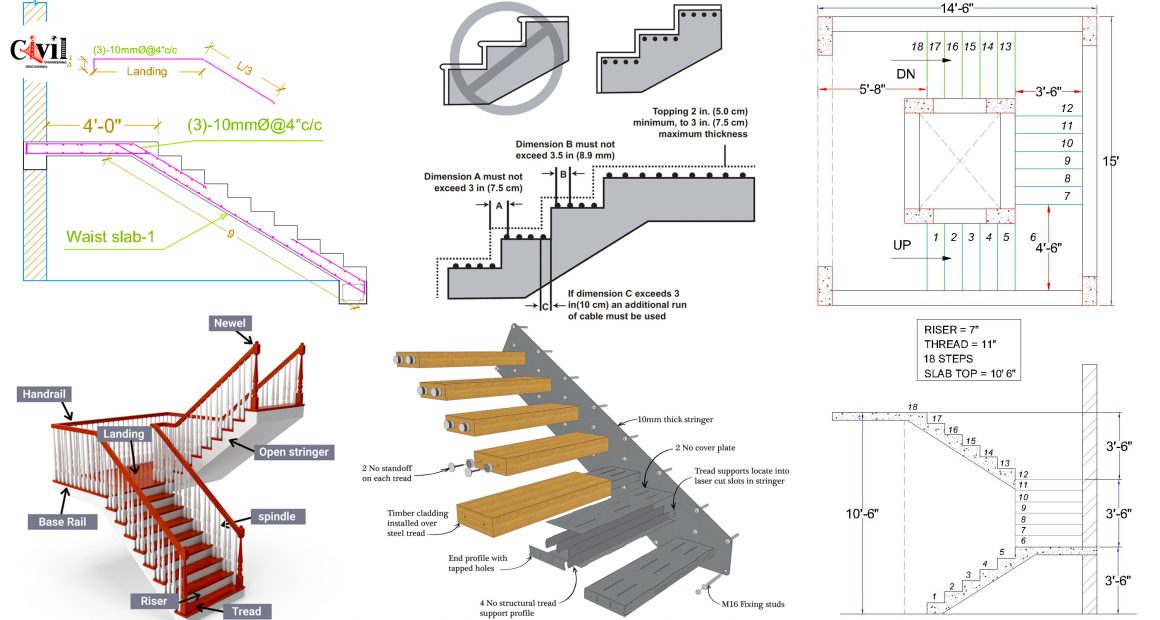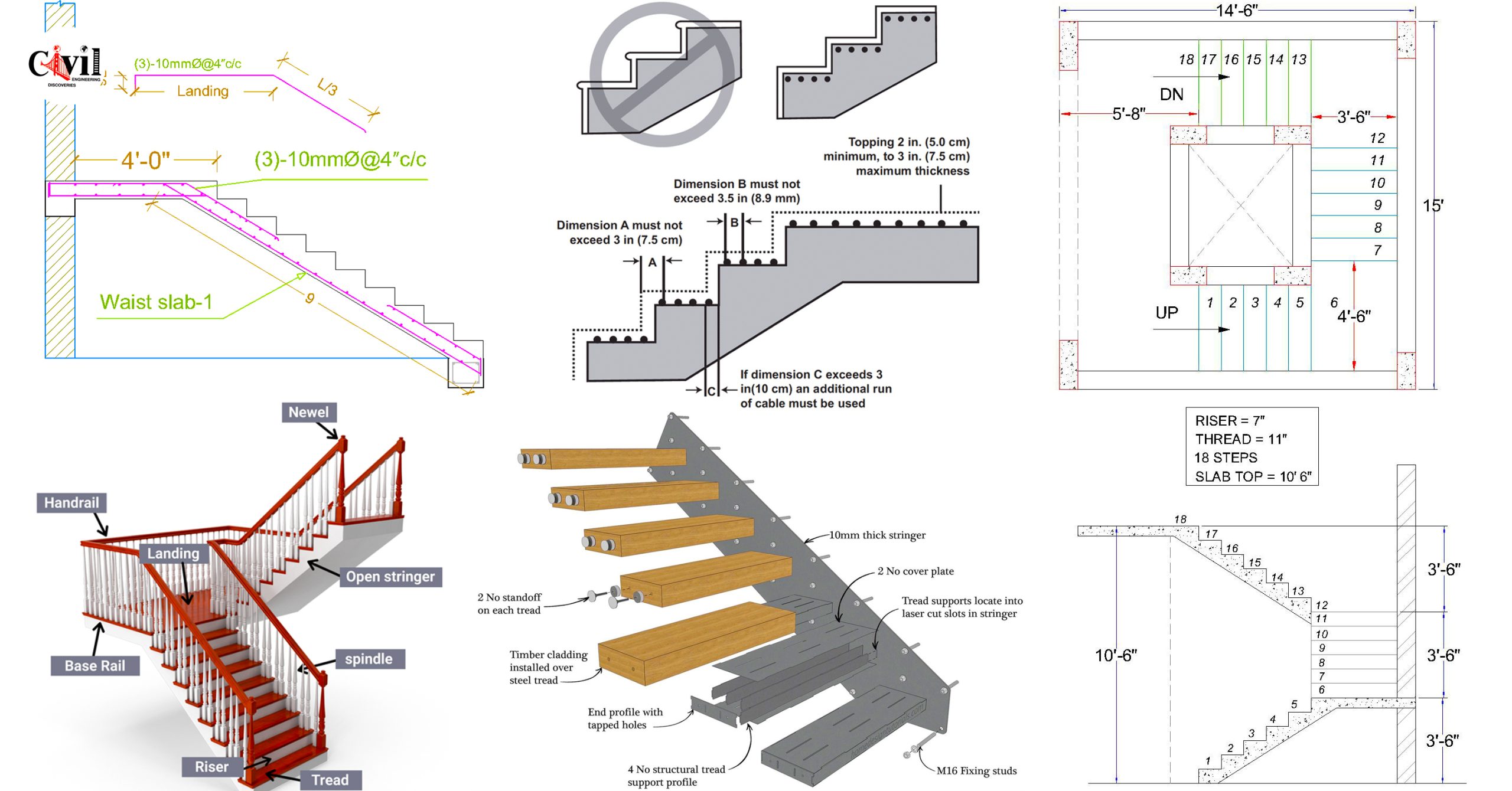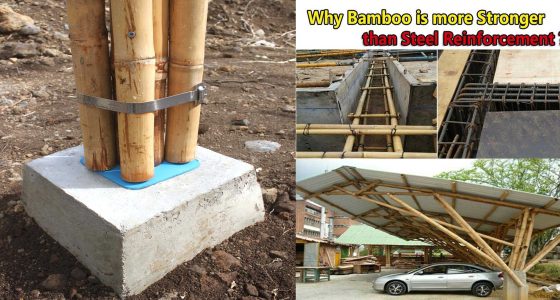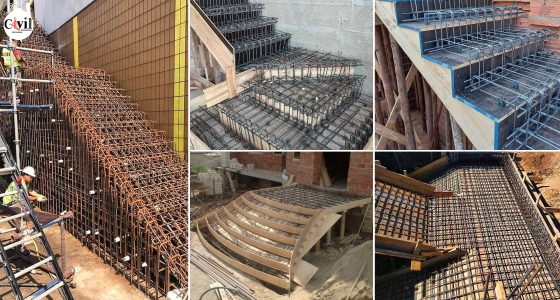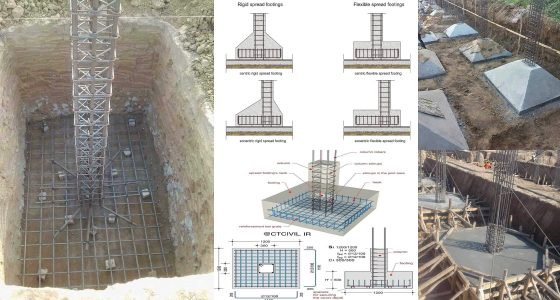When it comes to constructing staircases, one of the most popular and durable options is the RCC (Reinforced Concrete Cement) staircase. RCC staircases offer a solid and long-lasting structure that can withstand heavy foot traffic and various weather conditions. In this comprehensive guide, we will delve into the details of RCC concrete staircases, including their classification and the importance of proper RCC detailing.
Classification Of Staircases:
Staircases come in different shapes, sizes, and designs to suit various architectural requirements. The classification of staircases helps us understand their structural characteristics and functional aspects. RCC staircases can be categorized based on their shapes, such as straight stairs, L-shaped stairs, U-shaped stairs, spiral stairs, or helical stairs. Each type has its own advantages and considerations when it comes to construction.
RCC Stair Detailing:
Proper detailing is crucial in ensuring the strength and stability of an RCC staircase. The process involves meticulous planning and calculation to determine the dimensions of each component – from treads (horizontal steps) to risers (vertical parts), stringers (structural supports), landings (platforms between flights), handrails, balustrades, and more.
RCC detailing also includes reinforcement design to provide additional strength to the structure. This involves determining the size and placement of steel bars or meshes within the concrete framework. Reinforcement ensures that the staircase can bear heavy loads without cracking or collapsing over time.
Importance Of Proper RCC Detailing:
Accurate RCC detailing plays a vital role in ensuring safety as well as longevity of a concrete staircase. It not only enhances structural integrity but also minimizes risks such as cracks or unevenness that could lead to accidents or injuries.
Additionally, proper RCC detailing allows for the efficient use of materials while optimizing cost-effectiveness during construction. It helps in avoiding unnecessary wastage by precisely calculating the quantities required for each component.
Conclusion:
RCC concrete staircases offer a reliable and robust solution for both residential and commercial buildings. Understanding the classification of staircases and the importance of proper RCC detailing is essential for architects, engineers, contractors, and anyone involved in staircase construction. By following these guidelines, you can ensure the creation of durable and aesthetically pleasing RCC staircases that will stand the test of time.
